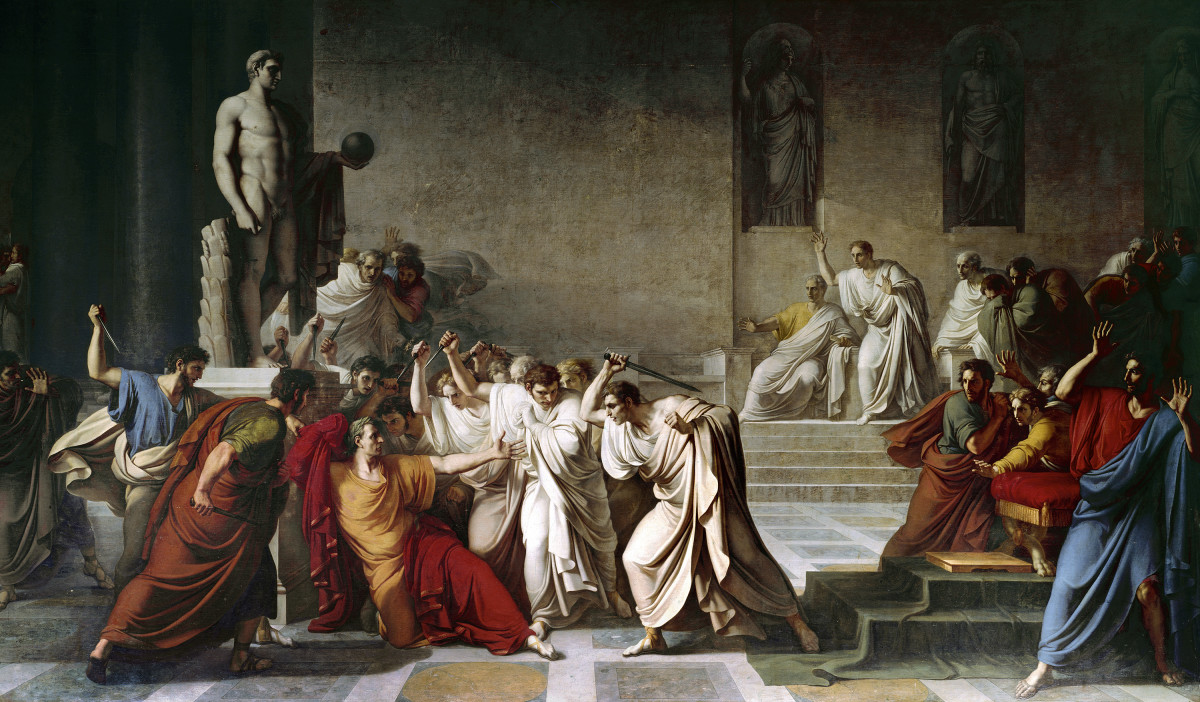As Roman territory increased, signs of trouble multiplied. The Republic allowed a few overseas cities to retain some self-government but usually organized its new territories as provinces under governors appointed by the Senate. Some of the governors proved oppressive and lined their own pockets; as long as they raised recruits for the army and collected taxes, they had a free hand. In Italy pressure mounted from Rome’s allies, who demanded full citizenship and a share in the new wealth flowing into the capital.
The great majority of those who lived on the Italian peninsula were farmers. By the time of the Republic, Roman farmers had advanced beyond the simple two- field system of the Greeks. The Romans cultivated the land throughout the year. They had learned to exploit the soil in various ways: by cereal and legume cultivation, by growing trees for timber or fruit, by animal husbandry, and by producing vegetable crops for both sustenance and sale. Such mixed intensive farming gave the farmer increased economic power, made him less dependent on the weather, and limited the tendency toward impoverishment of the soil.
These trends in agriculture affected society as a whole. The army needed grain. When military needs increased and fewer fields were put into grain, Rome had to turn to imports, making the Republic more dependent on outside suppliers. Imported grain from Sardinia, Egypt, and Africa became essential to the growing needs of the army, as well as to those who received free grain from the state. Even with a large supply of Sicilian grain brought to Italy, there was still no surplus, for the army and the urban poor consumed the increase. Thus wheat-growing, perhaps interspersed with vines and olives, remained commonplace except in those areas where the latifundia began to take over. Latifundia were large mixed farms or cattle ranches worked by slaves. Only large landowners could afford them, and increasingly the small farmers were driven penniless into refuge among the urban poor in Rome.
Proprietors of latifundia, successful generals, governors, merchants, and contractors who had built roads for the state or furnished supplies to the army, combined to form a new class of very rich men. Some of them managed to join the Senate, but the small inner circle, where policy was made, continued to be dominated by the nobles. Those senators who were content with matters as they were called themselves optimates (the best people), while those who found themselves unable to get things done their way sometimes tried to get support from the people at large in the Tribal Assembly, and so were called by their opponents populares. Social tensions became acute.
Two noble brothers named Gracchus emerged during the late 130s and the 120s B.C. as the champions of the dispossessed, whom they hoped to get back onto the land or into the army. Tiberius Gracchus, who served as tribune of the people in 133, and Gaius, who held the post from 123 to 121, sought to increase the role of the tribunes and the Tribal Assembly at the expense of the anti-Gracchi senators. The brothers wanted to resettle landless farmers either abroad or on state-owned lands in Italy that had been leased to agrarian capitalists; to give the urban poor of Rome relief by allowing them to buy grain from the state at cost; and to build roads and granaries, in part as public relief programs. Politically, Gaius wanted to give certain judicial posts to the equites (wealthy Romans below the rank of senator), to extend Roman citizenship to all Latins, and to raise other Italians to Latin status.
The efforts of the Gracchi were not enough, and when the Senate established martial law in the face of growing public unrest and suspicion of Gaius’s intentions, he was hunted down and killed. Three thousand of his followers were then condemned to death by a senatorial court. In the succeeding decades the state had to lower the price of grain, until by 58 B.C. the poor were getting their bread free. Had the dispossessed farmers actually received new allotments, the number in the city needing cheap bread would have fallen off sharply. The agrarian capitalists, after being forced by the Gracchi to give up some of the land they rented from the state, were soon expanding their holdings once more. The latifundia had come to stay. On the political side, the Senate resented the extension of rights to the equites and balked at granting citizenship to other Italian cities until, after an uprising in 91-88 known as the Social War, it had to be done.
Political leadership now passed to generals who cared less for principle than for power. A general victorious in the chronic provincial warfare would celebrate in Rome with a great triumph—a parade of his successful troops and their prisoners and booty that would dazzle the public. The troops, rewarded by their commanders, became loyal to them rather than to the state. The prescription for political success in Rome was to make a record as a successful general. But instability outside Rome was increasing. In the provinces the misrule of the governors provoked uprisings. Along the frontiers, by the end of the second century B.C., Germanic tribes were threatening. In 88 B.C. Mithridates, the king of Pontus (in Asia Minor), seized the Roman province of Asia and between 88 and 85 encouraged the massacre of eighty thousand Romans.

